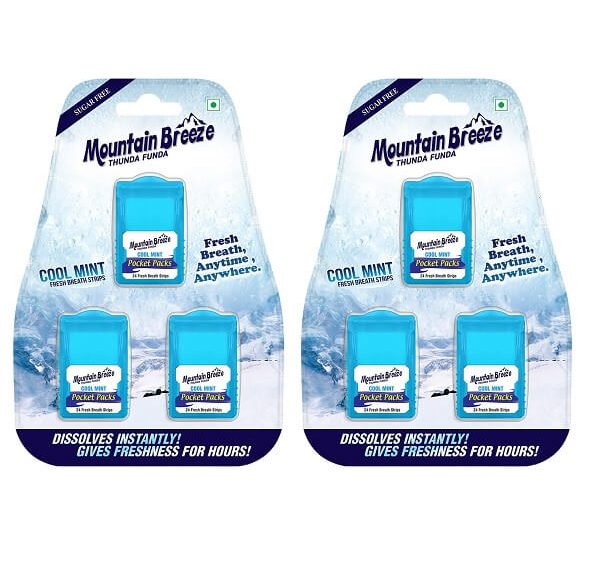Halitosis, another name for bad breath, is a common and humiliating condition that many people experience. Although oral bacteria is the primary cause, other variables including nutrition, health issues, and inadequate dental care can also contribute to it. Thankfully, several natural solutions can help freshen and reduce foul breath. These are some practical remedies that you may use at your house.
1. Good Oral Hygiene
The foundation of combating bad breath starts with maintaining good oral hygiene. Brushing your teeth at least twice a day and flossing daily can remove food particles and plaque, which are breeding grounds for bacteria. Using fluoride toothpaste and replacing your toothbrush every three months are also essential steps. Additionally, brushing your tongue or using a tongue scraper can help remove bacteria and food debris from the surface of your tongue.
2. Hydration
In order to avoid bad breath, it is essential to stay hydrated. Bacteria may flourish in an environment that is created by a dry mouth. Throughout the day, consuming lots of water aids in the removal of germs and food particles. Additionally, it promotes saliva production, which naturally has antimicrobial qualities. Refraining from drinking alcohol and caffeinated drinks might also be beneficial because they aggravate dry mouth.
3. Salt Water Rinse
A salt water rinse is a simple yet effective home remedy for bad breath. Salt has natural antibacterial properties that can reduce the number of bacteria in your mouth. To make a saltwater rinse, dissolve a teaspoon of salt in a glass of warm water and gargle for 30 seconds before spitting it out. Doing this once or twice a day can help keep your mouth clean and fresh.
4. Herbal Remedies
Several herbs can help combat bad breath:
- Parsley: Chewing on fresh parsley can help neutralize bad odors. Parsley contains chlorophyll, a natural deodorizer that can freshen your breath.
- Mint: Mint leaves or mint tea can have a similar effect. The menthol in mint provides a fresh scent and can help mask unpleasant odors.
- Cinnamon: Cinnamon has essential oils that can reduce the number of bacteria in the mouth. Drinking cinnamon tea or chewing on cinnamon sticks can be beneficial.
5. Apple Cider Vinegar
Apple cider vinegar has acidic properties that can balance the pH levels in your mouth, making it less hospitable for bacteria. You can use it as a mouthwash by mixing a tablespoon of apple cider vinegar in a glass of water and swishing it around your mouth for 30 seconds before spitting it out. Alternatively, drinking a solution of apple cider vinegar diluted in water before meals can help with digestion and reduce bad breath.
6. Baking Soda
Baking soda is another effective home remedy for bad breath. It neutralizes acids in the mouth and reduces the growth of bacteria. You can use baking soda as a mouthwash by dissolving half a teaspoon in a glass of warm water and rinsing your mouth with it. Brushing your teeth with a mixture of baking soda and water can also help keep your mouth fresh.
7. Probiotics
Including probiotics in your diet can improve your oral health. Probiotics are beneficial bacteria that can help balance the microbial environment in your mouth and digestive system. Consuming probiotic-rich foods like yogurt, kefir, sauerkraut, and kimchi can help reduce bad breath. Alternatively, you can take probiotic supplements.
8. Green Tea
Green tea has antimicrobial and deodorizing properties that can help reduce bad breath. Drinking green tea regularly can decrease the number of bacteria in your mouth. For an extra boost, you can add some mint leaves to your green tea for a refreshing drink that fights bad breath.
9. Dietary Changes
What you eat can significantly affect your breath. Avoiding foods that cause bad breath, such as garlic and onions, can help. Instead, opt for crunchy fruits and vegetables like apples, carrots, and celery, which can help clean your teeth and stimulate saliva production. Including foods rich in vitamin C, such as citrus fruits, can also help prevent bacterial growth.
10. Oil Pulling
An old Ayurvedic technique called “oil pulling” involves swishing oil about your mouth to get rid of pollutants and microorganisms. Since coconut oil has antibacterial qualities, it is frequently utilized. Try oil pulling by swishing a spoonful of coconut oil around your mouth for ten to fifteen minutes, then spitting it out. After giving yourself a warm water rinse, clean your teeth as usual.
Bad breath can be managed effectively with these home remedies. By maintaining good oral hygiene, staying hydrated, and incorporating natural solutions like salt water rinses, herbal remedies, and dietary changes, you can enjoy fresh breath and improved overall oral health. If bad breath persists despite trying these remedies, it’s important to consult a healthcare professional, as it could indicate an underlying health issue that requires medical attention.






